Special Report
Can't Sleep? Here Are 19 Expert-Backed Tricks for a Good Night's Rest
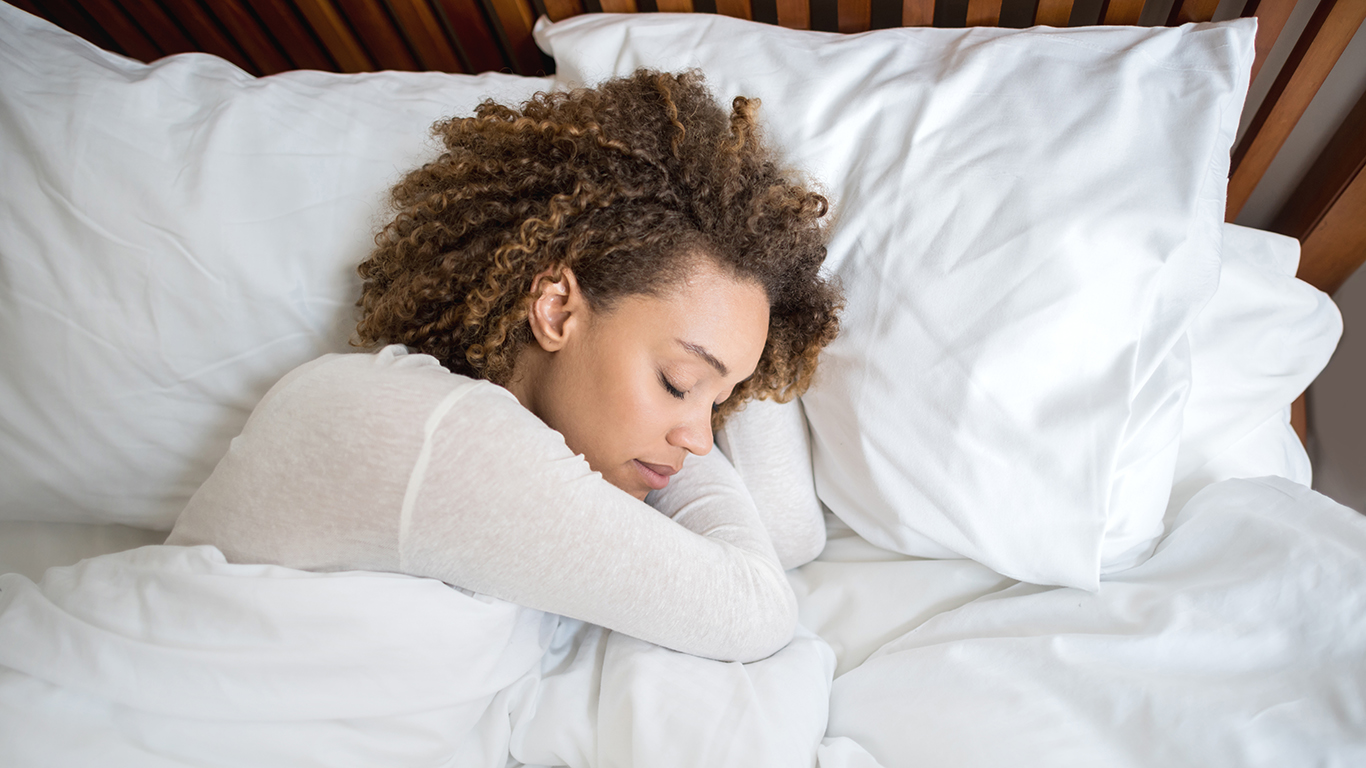
Published:
Last Updated:

Having trouble sleeping? Join the club. One in every three adult Americans don’t get enough sleep, according to the Centers for Disease Control and Prevention. Sleep is a biological need that promotes good health. Not getting enough may lead to numerous negative health outcomes, both in the short and long term, that range from daytime fatigue to increased risk of developing chronic conditions, depressive symptoms, and premature aging.
Generally, adults need about seven or more hours of sleep each night, but everyone has his or her own optimal sleep time. The quantity, however, is not all that matters. You can be in bed for the recommended seven-eight hours, but if you wake up every hour or so, you would not be rested because you would not have gotten any restful sleep. Sleep quality matters, too.
To identify the best habits for better sleep at night, 24/7 Tempo consulted several sleep doctors and a clinical psychologist specializing in insomnia treatment, and reviewed dozens of reviews of medical studies published online.
According to the National Sleep Foundation, you are considered a quality sleeper if you: sleep for 85% of the time you spend in bed; take 30 minutes or less to fall asleep; wake up no more than once per night; and are awake for 20 minutes or less during the night after falling asleep.
People today sleep about two hours less than a century ago, and the likelihood of not getting enough ZZZs on a regular basis has increased significantly over the past three decades as the boundaries between work and home have blurred. These are 21 bad things that happen to your body when you don’t get enough sleep.

1. Avoid caffeine several hours before bed
Caffeine is a stimulant and should be avoided at least four to five hours before bed, according to Dr. Ari Laliotis, a board-certified sleep medicine doctor with Sharp Rees-Stealy Medical Group in California. This includes chocolate and coffee.
“Coffee has a decent half-life,” Dr. Joshua Tal, a psychologist with a specialty in sleep disorders, said. “It stays in the body for five to six hours.” He doesn’t recommend having coffee after 3 p.m.
[in-text-ad]

2. Make the bedroom cool
“The body is designed to sleep better at cooler temperatures,” Dr. Kent Smith, founder of Sleep Dallas, a dental sleep medicine practice and president of the American Sleep and Breathing Academy, said. “In fact, our temperature naturally drops in the evening to prepare us for sleep,” he added. For most people, the optimal sleeping temperature is between 60 and 67 Fahrenheit, according to him.
That is why you should adjust the room temperature accordingly. “A warm room will raise your body temperature, making you uncomfortable, possibly waking you up and affecting your sleep negatively,” Laliotis said.

3. Watch what you have for dinner
Avoid processed foods and sugar, which can interfere with blood sugar levels, Laliotis explained. High blood sugar leads to the kidneys working hard to eliminate it through urine, which means you’re probably waking up at night to go to the bathroom. Don’t eat any fatty foods or big meals before bedtime either, Smith said. “Eating high-fat, heavy foods that require extra effort to digest interrupts this restorative [sleep].”

4. Snack on certain foods throughout the day
Eating a healthy, balanced diet provides the body with the nutrients it needs to achieve a good night’s rest, Smith said. “People who have trouble sleeping should add tryptophan, calcium and magnesium-rich foods to their diet.” These foods include leafy vegetables, tuna, eggs, whole grains, bananas, and pistachios, according to Smith.
[in-text-ad-2]

5. Don’t drink alcohol in the evening
Alcohol is a depressant, Laliotis explained. It wears off in the middle of the night, and that creates an uncomfortable feeling that wakes people up. “The brain wave patterns of a sleeping person who drank at night are the same as [the patterns] in the middle of the day.” Some types of alcohol are also high in sugar, raising your blood sugar level and keeping you awake.

6. Keep the same bedtime routine, even on weekends
People struggling with sleep should really do their best to stick to the same bedtime hours, sleep experts say. This is how they will program their internal clock, which starts ticking in the morning. The time people go to bed is affected by the time they wake up, Dr. Mayank Shukla, a sleep medicine specialist in New York, explained. The more bedtime hours vary from night to night, the harder it becomes for the body to fall asleep when you try to.
[in-text-ad]
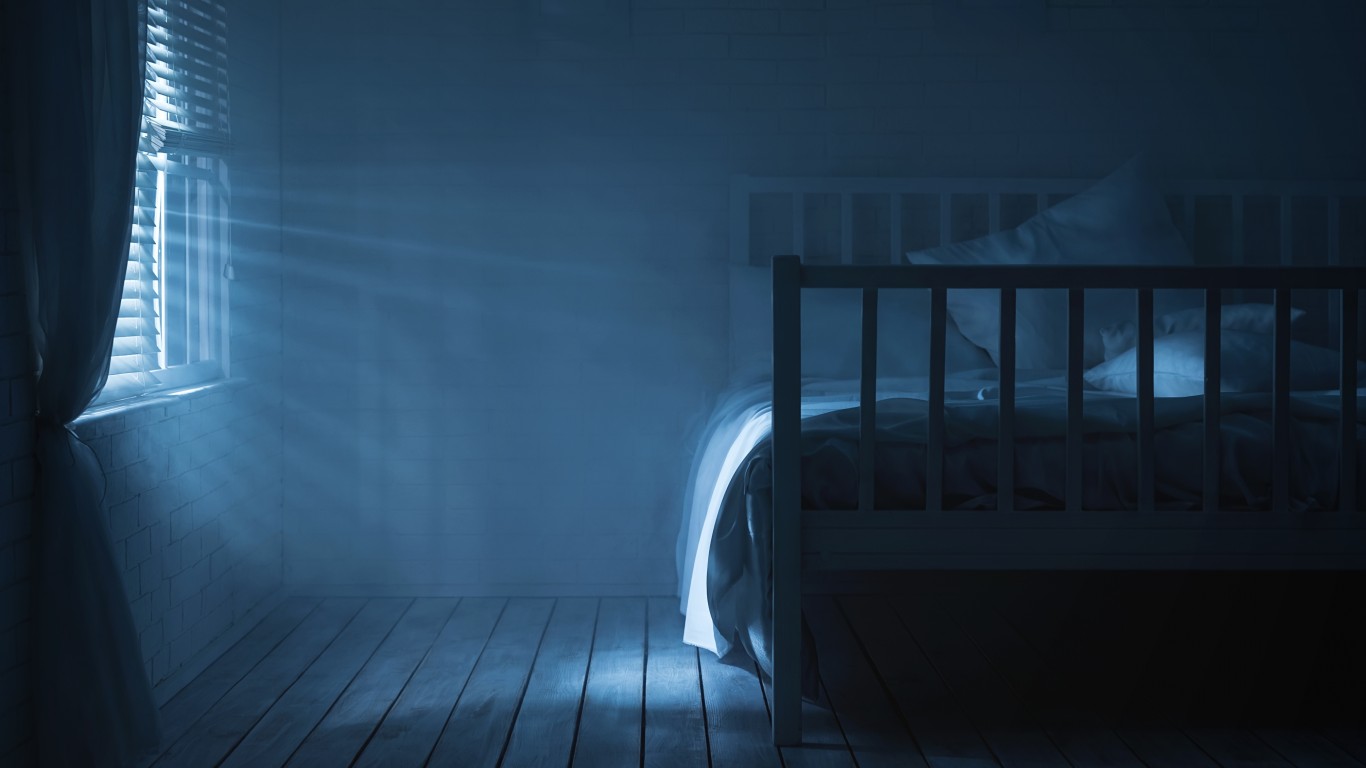
7. Make the room very dark
Circadian rhythm, which is basically the body’s internal clock that cycles between sleepiness and alertness at regular intervals, responds to light, Tal noted. When any light hits the eyes, it stimulates a nerve pathway to the brain, and wakefulness hormones are produced, he explained.
Artificial light tricks the body into slowing its production of melatonin, the hormone that promotes sleep, which can make it more difficult to fall asleep, Smith explained. “Even light from an alarm clock can have an effect on sleep quality, so it’s best to eliminate [light] as much as possible.”

8. Breathe deeply
One technique Tal recommends to help falling asleep is diaphragmatic breathing. This kind of deep breathing, also called “abdominal breathing” or “belly breathing,” helps slow down the heartbeat and lower the blood pressure, which helps the body enter the phase of deep sleep. You’re supposed to breathe in slowly through your nose and let the air in all the way down to your lower belly. Then tighten the abdominal muscles as you breathe out through the mouth.

9. Take a warm bath
For one, taking a warm bath is relaxing. But it’s the getting out of it part that counts when it comes to tricking the body into going to bed, according to Tal. A body’s temperature naturally decreases at night. A warm bath would increase it. The shock of cold once you leave the bathroom mimics the body’s decrease in temperature when it’s time to go to sleep, he explained.
[in-text-ad-2]
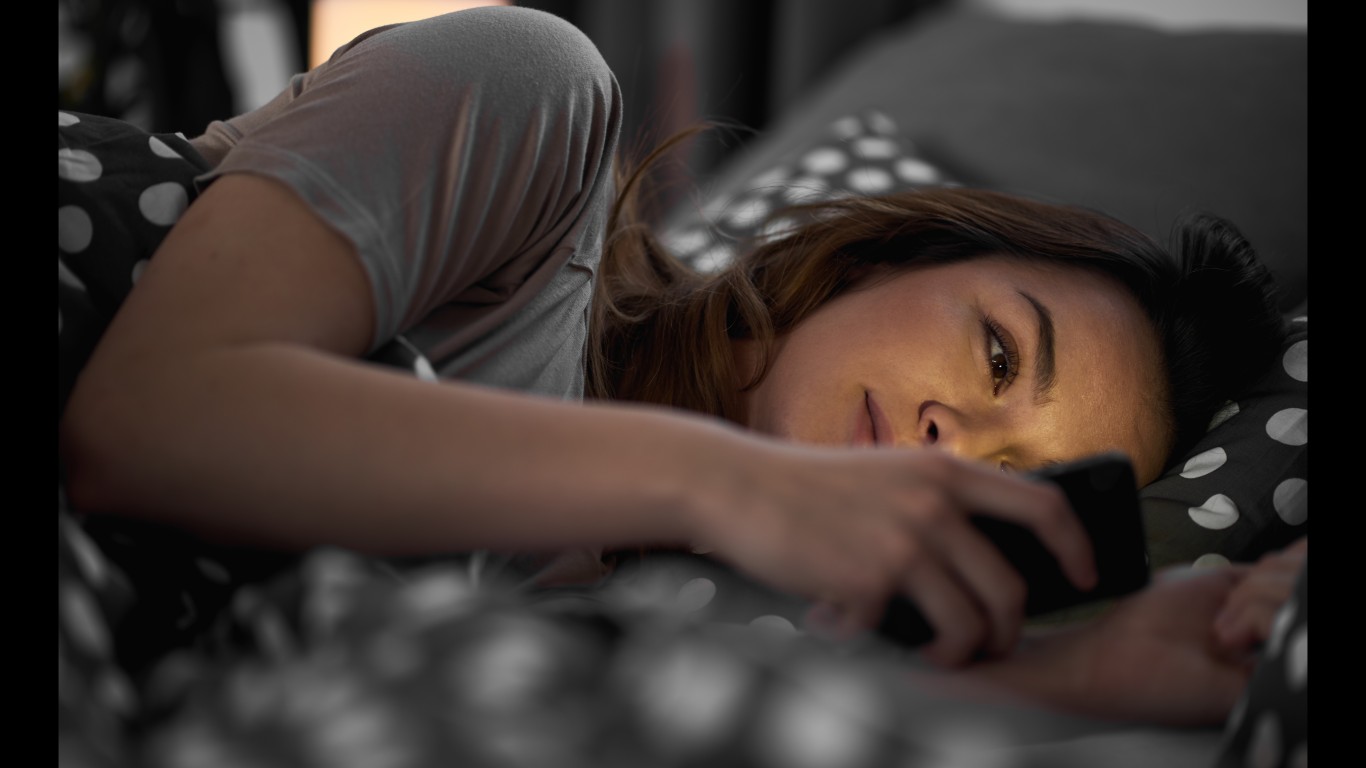
10. Ditch the electronic devices
Phones, laptops, TV, and all kinds of devices that emit light have no place in bed or the bedroom, according to sleep consultants. The light that comes from the screens can block the brain’s production of melatonin, which plays a role in regulating sleep-wake cycles, Shukla explained. The body needs darkness to produce this sleep hormone. Reading or listening to music are better options for winding down at night than watching TV, Smith added.

11. Exercise regularly
“Regular physical activity is part of a good sleep routine because it helps reduce stress and anxiety,” Smith said. According to a study published in the Mental Health and Physical Activity journal of more than 3,000 men and women ages 18-85,the majority of people who engaged in 150 minutes of moderate to vigorous activity a week were feeling less sleepy when they woke up. The researchers suggested that further studies would be required to confirm that increasing physical activity causes improvements in sleep.
[in-text-ad]

12. Don’t drink a lot of liquids at night
The amount of liquid a person should consume before bed varies for each individual. “Nearly 1 in 5 adults over age 20 wake up to go to the bathroom at least twice a night,” according to Smith. This condition is called nocturia. “If you are prone to nocturia, a good rule of thumb is to limit or avoid liquids for 3-4 hours before bedtime.”
Also, if you drink juice or soda, the stomach will still have to digest it. And just like with food, the acid from the stomach goes into the esophagus, which could potentially give you acid reflux.

13. Have some chamomile tea
Chamomile is an herb that has been used for its purported health benefits for centuries. Chamomile tea has been used to treat insomnia, but research regarding its effectiveness has been mixed at best and scientists have yet to provide conclusive evidence. The herb’s relaxing effects may be due to the flavonoid, a compound extracted from plants, that ties to benzodiazepine receptors, which play a role in treating anxiety and sleep disorders, in the brain.

14. Increase natural light exposure during the day
In a study from Northwestern Medicine and the University of Illinois at Urbana-Champaign, researchers observed 49 people who worked during the day — 27 of them were in windowless workplaces and 22 worked near windows. They found that the latter group of people slept better at night — they received 173% more light during the day and slept an average of 46 minutes more per night.
[in-text-ad-2]
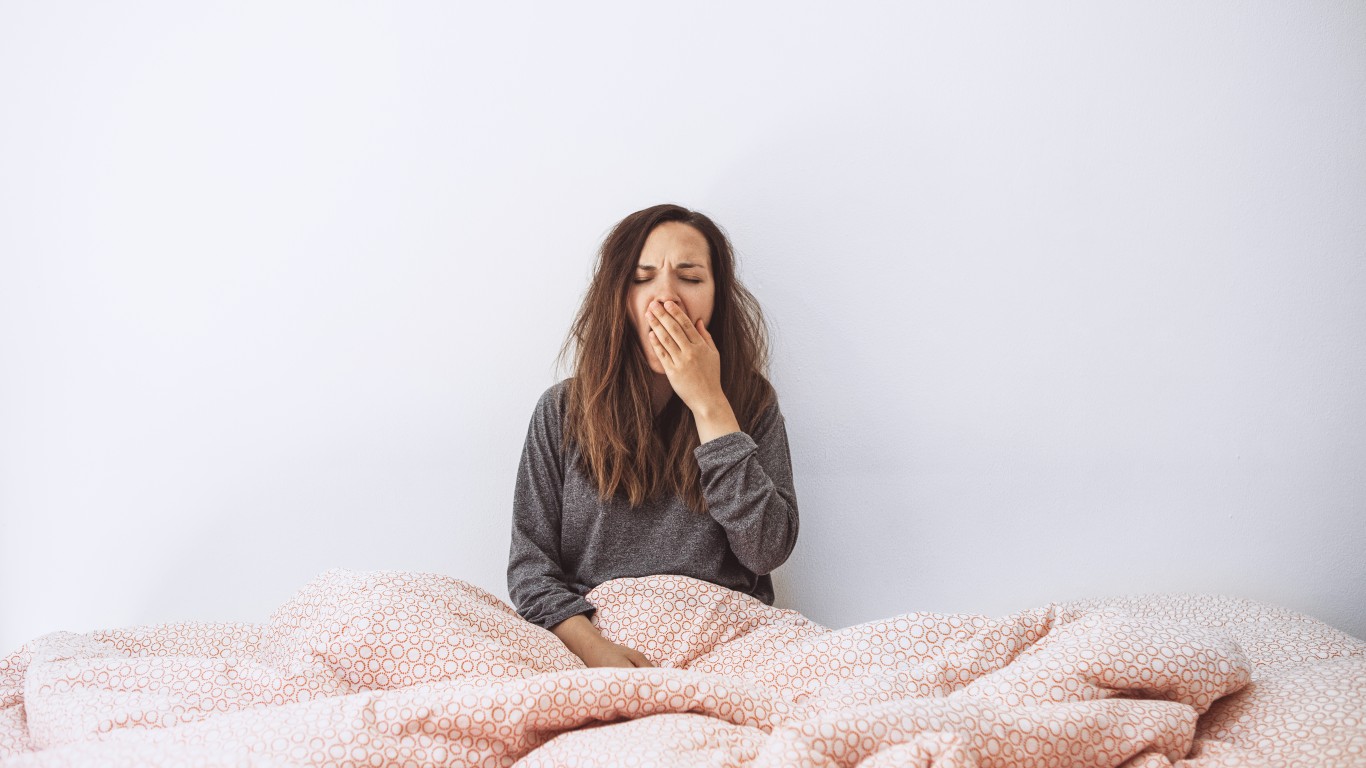
15. Don’t go to bed unless you are sleepy
The bed is not your desk, and the bedroom is not your office. Don’t answer calls and emails when you should be sleeping. When your brain is used to doing other tasks in bed — such as talking on the phone — before falling asleep, it would need you to do those things to fall asleep, Laliotis explained. The body gets used to being restless in bed, preventing it from falling asleep.

16. If you don’t fall asleep after 20 minutes, get out of bed
It’s not a good idea to spend time in bed trying to fall asleep. Chances are you’ll end up spending much of the time just worrying about falling asleep rather than actually falling asleep. Your body will then learn to associate the bed and the bedroom with not falling asleep or not sleeping well, according to the Sleep Foundation. So if you can’t sleep, leave the bedroom. Go into a different room and try some relaxing activities such as reading a book, listening to music, or meditating.
[in-text-ad]

17. Don’t eat a large meal before bedtime
Eating a big meal before bed may result in indigestion or heartburn. There is some evidence that eating dinner within three hours of bedtime is positively linked with a risk of developing acid reflux symptoms, a common condition that causes heartburn and indigestion and can trigger asthma.
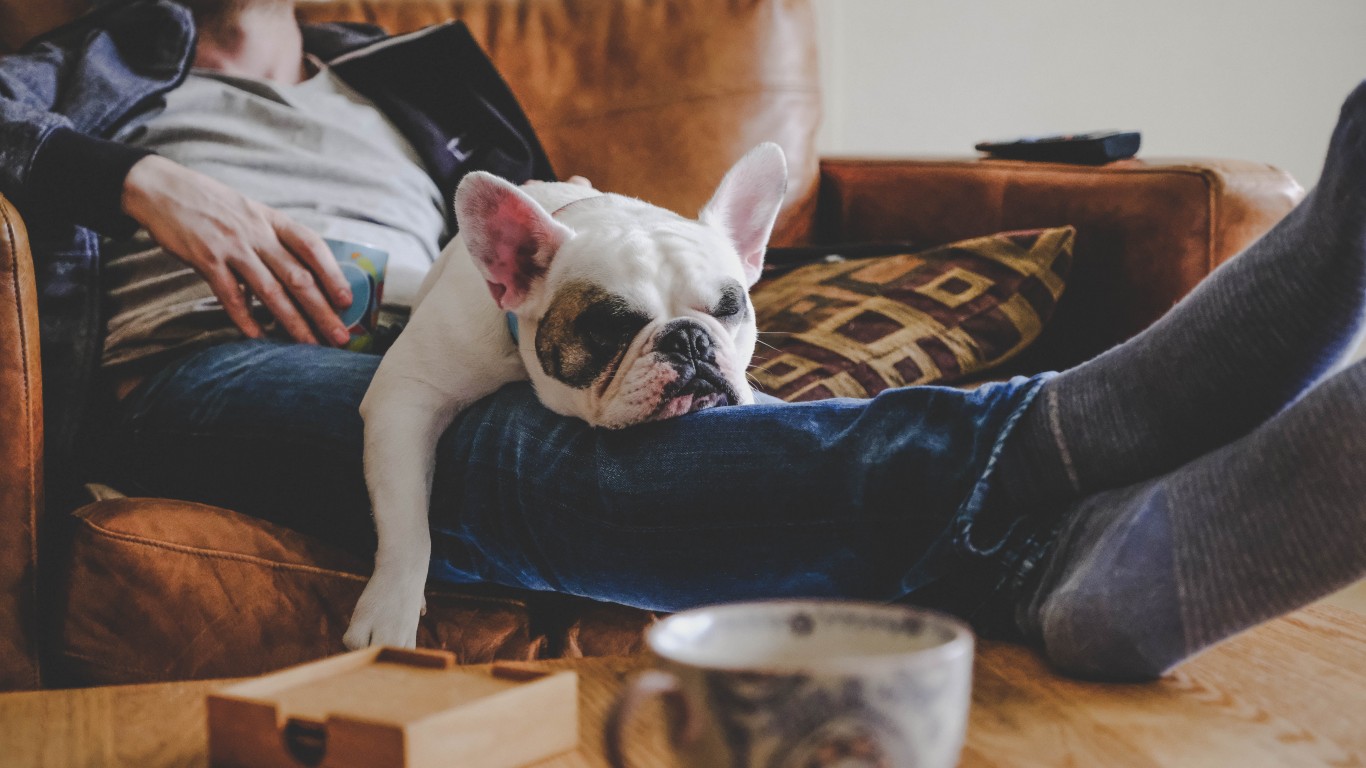
18. Avoid irregular or long daytime naps
While short naps can be restorative and relaxing, long, frequent, or irregular naps during the day can negatively affect sleep at night. Sleeping during the day may confuse a person’s internal clock, resulting in having trouble falling asleep.
Another study noted that naps that last longer than 30 minutes can have an adverse effect on productivity and sleep quality, more specifically sleep inertia. Sleep inertia is the transitional state between sleep and wake, also known as the heavy feeling right after you wake up.

19. Change your bed, mattress, or pillow
Bed quality can affect sleep quality. If you are having troubles sleeping, maybe it’s time to check if you need a new mattress. (Mattresses should be replaced every six to eight years, according to the Sleep Foundation.) Some research suggests that sleeping on a medium-firm mattress promotes comfort, proper spinal alignment, and quality sleep. There has also been research suggesting that people who slept on memory foam or medium-firm mattresses experienced a decrease in pain. They also fell asleep faster.
The thought of burdening your family with a financial disaster is most Americans’ nightmare. However, recent studies show that over 100 million Americans still don’t have proper life insurance in the event they pass away.
Life insurance can bring peace of mind – ensuring your loved ones are safeguarded against unforeseen expenses and debts. With premiums often lower than expected and a variety of plans tailored to different life stages and health conditions, securing a policy is more accessible than ever.
A quick, no-obligation quote can provide valuable insight into what’s available and what might best suit your family’s needs. Life insurance is a simple step you can take today to help secure peace of mind for your loved ones tomorrow.
Click here to learn how to get a quote in just a few minutes.
Thank you for reading! Have some feedback for us?
Contact the 24/7 Wall St. editorial team.